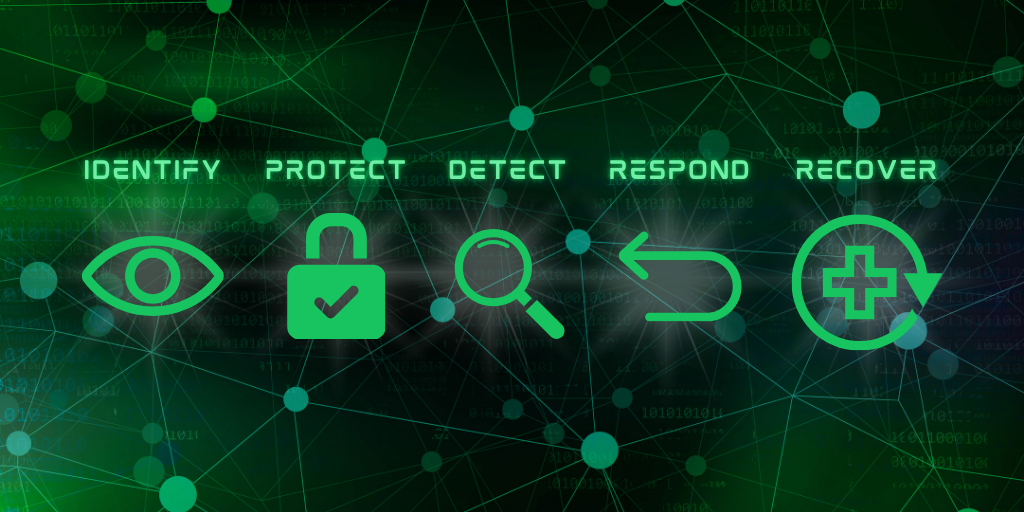Secure Messaging Practices for Small Businesses
Small businesses must prioritize secure messaging to protect sensitive information and maintain customer trust.
5 min read
.jpeg) Michael Markulec
:
Apr 1, 2025 9:59:34 AM
Michael Markulec
:
Apr 1, 2025 9:59:34 AM

Small businesses must prioritize secure messaging to protect sensitive information and maintain customer trust.
In the digital era, small businesses frequently depend on messaging applications such as Slack, Microsoft Teams, and Signal for daily communications. These platforms have become essential to business operations, providing real-time communication, file sharing, and collaborative features that streamline workflows and enhance productivity. These tools significantly enhance collaboration and efficiency but pose considerable security risks if not properly managed. The convenience of instant messaging can inadvertently lead to the exposure of sensitive information, making secure messaging practices vital for protecting business data and maintaining customer trust.
Secure messaging is imperative for safeguarding sensitive business information, including financial records, client details, and proprietary data, from unauthorized access and potential cyber threats. Messaging channels can become susceptible to data breaches without adequate security measures, resulting in severe financial loss, legal liabilities, and irreparable reputational damage. Customers' trust in a business is paramount, and any compromise in data security can erode this trust, leading to a loss of clientele and diminished market standing.
Understanding the importance of secure messaging is the first step toward safeguarding your business's digital communication. It involves recognizing potential threats and implementing robust security protocols to mitigate them. By prioritizing secure messaging, small businesses can ensure that their communication channels are efficient and fortified against cyber threats, thereby protecting their assets and maintaining the confidence of their customers.
While offering unparalleled convenience and efficiency, messaging apps come with a host of security risks that businesses must be vigilant about. One of the most prevalent risks is data leakage, a scenario where sensitive information can be inadvertently or maliciously shared outside the organization. This can occur through simple human error, such as sending a message to the wrong recipient, or through more nefarious means, such as an insider threat deliberately leaking information. Unauthorized access is another significant concern, particularly if robust authentication methods, such as multi-factor authentication, are not implemented. Without these security measures, unauthorized individuals can access sensitive conversations and data, potentially leading to severe breaches.
Phishing attacks are also alarmingly common in messaging apps. Cybercriminals craft deceptive, legitimate messages, tricking users into revealing confidential information such as passwords, financial details, or personal identification numbers. These attacks can be highly sophisticated, often mimicking trusted contacts or official communications, making them difficult to detect without proper training and awareness.
Moreover, some messaging platforms' lack of end-to-end encryption poses a critical vulnerability. Without this encryption, communications can be intercepted during transmission, allowing unauthorized parties to view and potentially manipulate the content. This exposure not only compromises the confidentiality of the information but also undermines the integrity of the communication process. Therefore, it is imperative for businesses to choose messaging platforms that offer strong encryption and to educate their employees on recognizing and mitigating these security threats.
Small businesses should adopt and rigorously implement a comprehensive set of best practices to mitigate the numerous risks associated with messaging apps. First and foremost, ensuring that all messages are encrypted end-to-end is crucial. This encryption is a protective shield, safeguarding data as it travels across networks and preventing unauthorized parties from intercepting and accessing sensitive information. By encrypting messages, businesses can maintain the confidentiality and integrity of their communications, thereby reducing the risk of data breaches.
In addition to encryption, employing multi-factor authentication (MFA) is essential for enhancing security. MFA requires users to provide multiple verification forms before accessing messaging apps, such as a password combined with a fingerprint scan or a one-time code sent to a mobile device. This additional layer of security significantly reduces the likelihood of unauthorized access, making it more challenging for cybercriminals to compromise accounts, even if they manage to obtain a user's password.
Another critical practice is regularly updating and patching messaging apps. Software updates often include security patches that address known vulnerabilities, and failing to apply these updates can expose systems to exploitation by cyber attackers. By keeping apps up-to-date, businesses can protect themselves against the latest threats and ensure their communication tools remain secure.
Educating employees about the dangers of phishing attempts is also vital. Phishing attacks often involve deceptive messages that appear legitimate, aiming to trick users into divulging confidential information. By training employees to recognize the telltale signs of phishing and encouraging them to report suspicious messages, businesses can prevent potential security breaches and protect sensitive data.
Furthermore, limiting the sharing of sensitive information over messaging apps is essential. Instead, businesses should use secure document-sharing platforms that offer enhanced security features for transmitting confidential data. By doing so, they can minimize the risk of accidental data exposure and ensure that sensitive information is only accessible to authorized individuals.
Several tools and technologies can significantly enhance the security of messaging apps, providing businesses with robust defenses against potential cyber threats. For instance, Signal is renowned for its strong end-to-end encryption, which ensures that messages are only readable by the intended recipients, making it a preferred choice for secure communication. This encryption technology is crucial for maintaining the confidentiality and integrity of sensitive information exchanged over the platform. In addition to Signal, Microsoft Teams and Slack are popular messaging platforms that offer a variety of security features tailored to protect business communications. These features include data loss prevention (DLP), which helps prevent unauthorized sharing of sensitive information, and advanced threat protection, which detects and mitigates potential security threats. These tools can be configured to meet specific business needs, allowing organizations to customize their security settings according to their unique requirements.
Furthermore, using a Virtual Private Network (VPN) is an effective way to secure internet connections, ensuring that data transmitted over the network is encrypted and protected from interception by unauthorized parties. This is particularly important for businesses with remote employees or those that frequently use public Wi-Fi networks, as it adds a layer of security to their communications. Employing secure messaging gateways can also bolster security by filtering and monitoring messages for potential threats, ensuring that only safe and authorized communications are allowed through. Additionally, implementing monitoring tools can provide real-time insights into messaging activities, enabling businesses to quickly identify and respond to any suspicious behavior or potential breaches. By integrating these technologies into their messaging environment, companies can create a comprehensive security strategy that protects their data and instills confidence in their communication processes.
Technology alone cannot protect against all security threats; fostering a culture of security awareness is equally important. This involves creating an environment where every employee, regardless of their role, understands the critical importance of cybersecurity and feels empowered to contribute to the organization's security efforts. Regular training sessions on cybersecurity best practices are essential, as they equip employees with the knowledge and skills needed to recognize and respond to potential threats effectively. These sessions should cover a wide range of topics, including identifying phishing attempts, the importance of using strong, unique passwords, and properly handling sensitive information. These training programs should also be updated regularly to address emerging threats and incorporate the latest security protocols.
Encouraging open communication about security concerns is another vital component of building a security-aware culture. Employees should feel comfortable reporting suspicious activities or potential vulnerabilities without fear of retribution. This open dialogue can lead to the early detection of threats and the swift implementation of corrective measures. Furthermore, creating clear, comprehensive policies regarding messaging apps and other communication tools is crucial. These policies should outline acceptable use, data protection measures, and consequences for non-compliance, ensuring that all employees understand their responsibilities in maintaining security.
By making security a shared responsibility, small businesses can significantly reduce the risk of data breaches and enhance their overall cybersecurity resilience. This collective approach strengthens the organization's defenses and fosters a sense of ownership and accountability among employees. When everyone is engaged in protecting the company's digital assets, the likelihood of successful cyberattacks diminishes, and the business can operate with greater confidence in its security posture.

Small businesses must prioritize secure messaging to protect sensitive information and maintain customer trust.

In an era of ever-evolving cyber threats, small businesses can adopt the NIST Cybersecurity Framework to achieve robust cybersecurity without...

Phishing attacks are becoming increasingly sophisticated, posing a significant threat to businesses of all sizes. Implementing key strategies can...